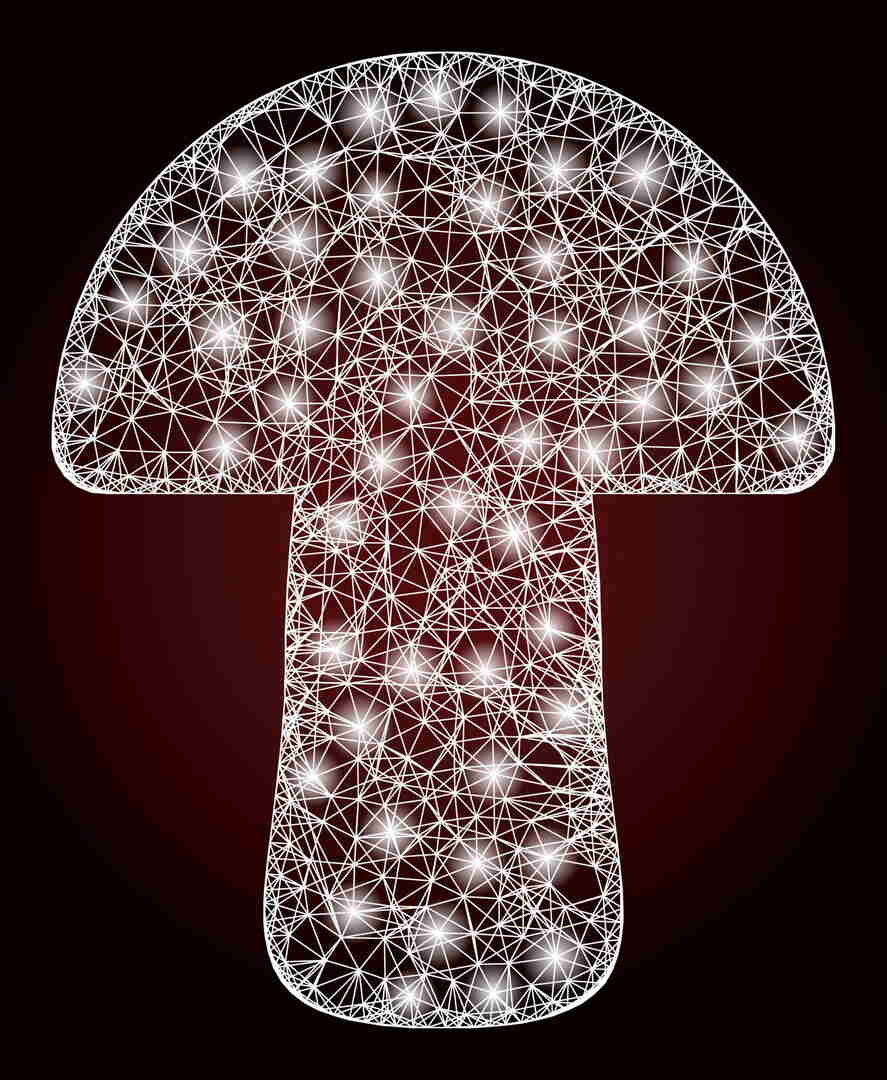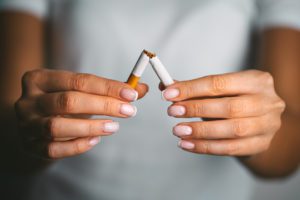
Could Magic Mushrooms Be A Hidden Answer To Addiction?
Though the idea of treating addiction with another drug that has been known as a drug of abuse may seem a little counterintuitive, the drug psilocybin, a compound produced by a variety of mushrooms, known for its psychedelic effects, and sometimes referred to as “magic mushrooms” is being investigated for its potential ability to fight addiction.
As of now, the drug is classified as a Schedule I drug because it has no proven medical use, which is actually a bit of a catch-22—because psilocybin’s illegal status has made conducting research on it so difficult, even those who believe there is a potential medical use have had little opportunity to establish it.
While psilocybin as an addiction treatment is an idea that was recently brought to public attention in a recent New York Times piece exploring the concept, it’s one that isn’t new to a select group of scientists who have been passionate about the idea for quite some time.
For instance, John Hopkins researcher Matthew Johnson is currently in the midst of a five year study on psilocybin as a treatment for smoking cessation after a 2014 pilot study emerged with significant positive results.
With an eighty percent success rate as measured by abstinence at six months, as compared to a 35 percent success rate for other behavioral and pharmacological therapies, the numbers are hard to argue with. Additionally, 60 percent of patients were still abstinent at two and half years, a result that seems almost unprecedented.
And before one gets too far up in arms about the possibility of replacing one addiction with another, rates of hallucinogen addiction also tend to be pretty low, at least in comparison to those associated with abuse of other drugs—not to diminish the seriousness of the addictions that do occur.
While it is possible to get psychologically addicted to the capacity psychedelics give their users to escape reality, the drugs are not generally known for fostering physical dependence the way that drugs like alcohol and opioids do.
In fact, psychedelics are far less addictive than even a drug like nicotine, which, when cigarette smoking is still the leading cause of preventable disease, disability, and death, sounds like it could be a reasonable trade off.

Psilocybin has also been investigated as a treatment for other mental illnesses, like depression and PTSD, with similarly positive results. So, some of its beneficial effect on addiction has been hypothesized to be related to its effect on these common comorbid conditions, as it may ameliorate the desire to “self medicate.”
The drug has also been studied in various other psychological contexts. For instance, it has been tentatively shown to have a beneficial effect on patients with eating disorders, conditions which can be similar to addiction in terms of involving the compulsive repetition of a set of destructive behaviors.
Psilocybin use was also shown to reduce feelings of demoralization among gay male survivors of the AIDs pandemic and to reduce depression and anxiety in a group of cancer patients. The cancer patients who underwent the treatment showed 80 percent less depression and anxiety six months out, along with improvements in their mood and their relationships.
As far as other research on psilocybin and addiction itself, one 2015 study associated a program of psilocybin treatment combined with therapy with significant reductions in drinking among alcoholic patients, as opposed to no such decrease found in a group given psychotherapy alone. Psilocybin has also been shown to have a protective effect against opioid addiction, and is being investigated for the treatment of cocaine abuse in another clinical trial.
While ketamine is also in the relative early stages of being used outside of research settings as a treatment for depression and related mental health conditions, its effects on the brain seem to wear off over time in a way that the effects of psilocybin show less propensity to. Ketamine also comes with some significant physical risks like that of bladder damage that seem to be less pronounced with psilocybin.
Though there have been reports of deaths and other serious adverse events related to psilocybin use, such events are relatively rare, to the extent that psilocybin was actually rated the safest recreational drug on a recent global drug survey. What deaths have occurred have often been associated with confounding factors, like psilocybin being used along with other drugs, the potential effect of contaminants, or the user’s underlying medical issues.
And, in rare cases, use of psychedelics like psilocybin can trigger schizophrenia, which means that anyone with a history or a family history of psychotic disorders should also steer clear. Psilocybin can also provoke symptoms like nausea and anxiety in some people, and can provoke elevations in heart rate that mean it should be avoided by anyone with cardiac risk.
However, any adverse events associated with psilocybin use over the course of the studies tended to be short lived and minor. But because of the risk of acting on a dangerous impulse while under the influence of psilocybin or a similar hallucinogen and not in one’s right mind, these powerful drugs should only be administered in a medical setting where supervision can be provided, and where a therapist or guide is on hand to help you remain calm and provide a buffer against any traumatic “bad trips.”
In other words, you definitely shouldn’t try this at home. Thus, another drawback is that the potentially prohibitive cost of psilocybin treatment and of the medical personnel who will need to supervise patients as they take their “trips,” might render it inaccessible to some of the lower income folks who might most need it.
Other hallucinogens like LSD (lysergic acid diethylamide), have also been studied as potential treatments for addiction and related mental health conditions. However, there are reasons that psilocybin ultimately had an edge, such as the fact that its effects typically last six hours as opposed to ten or twelve, which makes it more affordable and manageable to use in a clinical setting. Part of the issue also came down to politics, since psilocybin had less association with 60s counterculture than the controversial LSD.
But both drugs have shown promise when it comes to fighting addiction. One self-report study that investigated people who had been able to reduce their misuse of cannabis, opioids, and stimulants after taking LSD in a non-clinical setting found that, of the 96 percent of study participants who had met the criteria for substance use disorder before their experience, 27 percent in fact no longer met it afterwards. Larger doses were associated with greater reductions in drug use, and participants also reported finding their experiences highly meaningful.
The tradition of utilizing hallucinogens to curb addiction to more problematic substances can even be traced back to Bill Wilson, the founder of Alcoholics Anonymous. After firmly establishing his own sobriety, he later experimented with LSD in the hopes that it could help other alcoholics have spiritual awakenings that could embolden them pursue recovery.
Though Wilson indeed found that the treatment significantly improved his symptoms of depression and thought the drug showed promise, he eventually ceased his LSD use due to the objections of other AA members who were more concerned with staying true to the organization’s abstinence-only credo.
Yet results of these more modern studies on hallucinogens for addiction should still be taken with a grain of salt because most were relatively small, and because none are “double blind,” which means that the placebo effect could have been in play for some patients.
Double blind studies are so-called because the patient does not know what group they are in, which is pretty hard to pull off with a treatment as striking as a hallucinogen. However, one double blind study that worked by assigning participants to one high dose psilocybin and one low dose psilocybin condition found that only the high dose patients showed significant benefits from their treatment.
Researchers are also hopeful that studying the way these drugs work on the brain could help them develop less controversial and less unpredictable ways of achieving the same effects. Though how exactly psilocybin works its magic is another complicated question, the mystical experiences that some people have while under the influence of the drug seem to play a significant part.
After patients take psilocybin, they seem to show more connectivity across diverse areas of the brain, which alters cognition and perception, and may account for the sense of greater “connectedness” that some people feel during psilocybin experiences.
Under the influence of psilocybin, the brain also shows reduced activity in the amygdala, which is responsible for fear, and reduced activity in the areas typically associated with ego and sense of self, which is somewhat similar to the state that can be achieved via experienced meditation.
These factors may work to facilitate transformative experiences by increasing openness, and can combine to cause some patients to experience their “trip” as a profound burst of insight, with half of the patients who took the drug in one early thirty person study describing the experience as among the most meaningful of their lives.
On a longer term neurobiological level, psilocybin has also been hypothesized to work by resetting neurotransmitter levels and encouraging the growth of new brain cells, which is known as neurogenesis, which means that its effects may be less fleeting than those of other treatments that seem to show a more temporary effect.
So, though magic mushrooms may not be a magic bullet, they are an intriguing potential addition to the anti-addiction arsenal, and one I look forward to learning more about as science marches on. For now, though, treating addiction in a more conventional fashion is absolutely essential when it comes to a disease that often has such devastating consequences.
If you or someone you love is currently struggling with substance abuse, we hope you’ll consider our comprehensive intensive outpatient program at Reco Intensive. By combining unique holistic options with established and cutting-edge scientifically backed therapies, we strive to provide our clients with transformative experiences and to heal “the whole person” spiritually, mentally, and physically. To learn more about our program and how we can help you or a loved one get back on the road to a full recovery and brighter future, feel free to call us anytime at 561.464.6505 or to contact us online anytime here.
Sources:
fiercebiotech.com/research/magic-mushrooms-might-be-next-treatment-tested-for-alcohol-addiction
frontiersin.org/articles/10.3389/fpsyt.2019.00955/full
nytimes.com/2022/03/31/well/mind/psilocybin-mushrooms-addiction-therapy.html